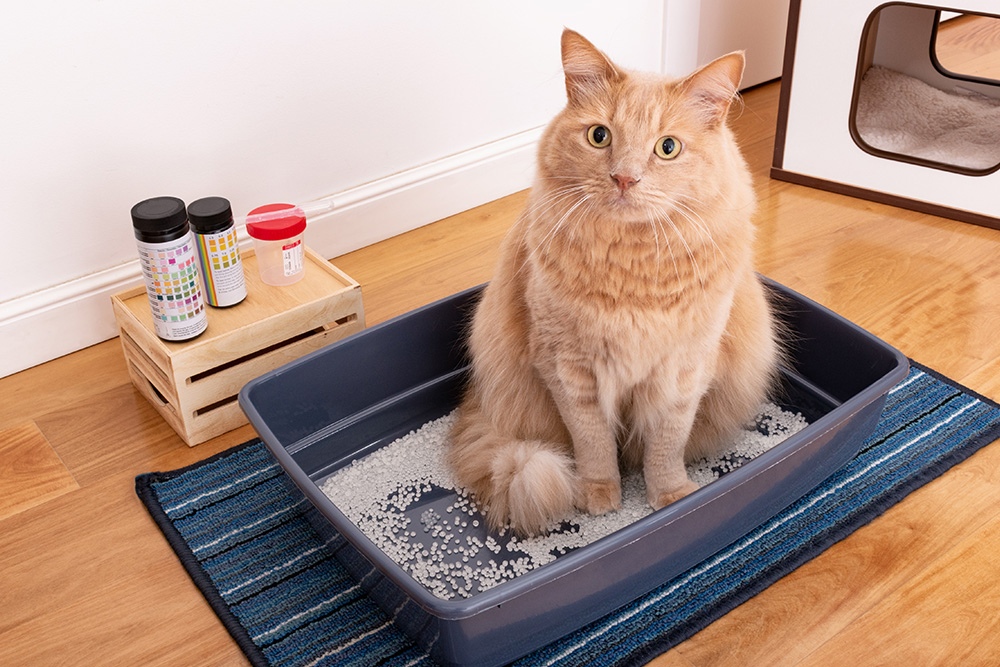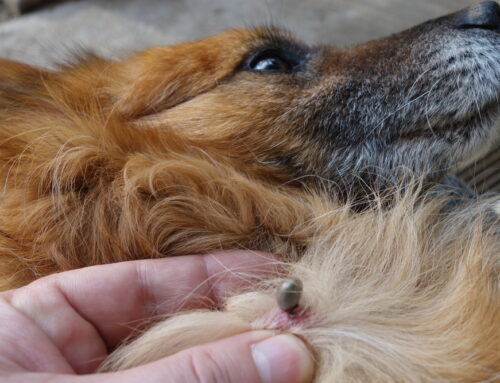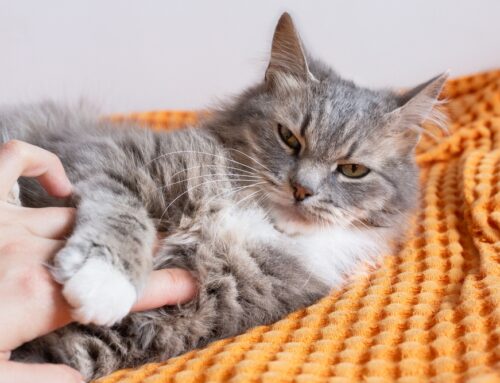Is Your Pet Straining to Pee? What Every Owner Should Know About UTIs
Your cat squats in the litter box again and again, yet no urine appears. Your dog suddenly starts having accidents indoors after years of perfect house training. To a worried pet owner, these moments are confusing and frustrating- but they’re rarely about behavior.
Urinary tract infections (UTIs) are one of the most common health problems in dogs and cats. They’re also among the most uncomfortable. At Star of Texas Veterinary Hospital in Austin, our Fear Free Certified team focuses on helping pets feel safe, calm, and comfortable during every step of diagnosis and treatment. When urinary issues are caught early, pets recover faster and avoid serious complications.
When Urinary Trouble Becomes an Emergency
Some urinary conditions can’t wait. Male cats, in particular, are prone to dangerous blockages that prevent urine from leaving the body. This condition- known as urinary obstruction– can become life-threatening within hours.
If your cat is straining in the litter box, crying out, or passing little to no urine, seek immediate veterinary care. Dogs showing similar effort without output should also be examined urgently. These symptoms can look like a mild infection, but a blockage quickly leads to toxin buildup, kidney damage, and severe pain.
Even when urination isn’t completely blocked, other warning signs- like blood in the urine, strong odors, or frequent licking- should never be ignored. Early evaluation can prevent infection from spreading to the kidneys and help your pet return to normal comfort and habits.
Understanding UTIs in Dogs and Cats
What to Watch For
The symptoms of urinary tract infections in dogs and cats often appear gradually. A few common signs include:
- Frequent squatting or straining with little urine produced
- Pink or red-tinged urine
- Strong or unusual urine odor
- Excessive grooming around the urinary area
- Accidents in the house or urinating outside the litter box
Because these changes can mimic behavioral problems, it’s important not to assume your pet is acting out. Cats who urinate on beds or rugs, or dogs who suddenly ask to go outside multiple times an hour, may actually be in pain.
What Causes UTIs?
Bacterial infections are the leading cause of UTIs in both species. Bacteria enter through the urethra, travel into the bladder, and multiply, causing irritation and inflammation. Female pets are at higher risk because their shorter urethra makes it easier for bacteria to ascend.
Certain physical traits also increase vulnerability. Dogs with a recessed vulva may develop infections more often because of moisture and debris trapped in skin folds. Overweight pets are also more prone to these problems, as excess tissue around the genital area holds bacteria and makes cleaning difficult.
Underlying diseases like diabetes can worsen the risk. Diabetic pets produce glucose-rich urine, which provides an ideal environment for bacteria to grow. Pets taking immune-suppressing medications or those with kidney disease should have regular urinalysis and culture tests to catch infections before they progress.
Prevention Through Regular Veterinary Care
Wellness Visits and Diagnostic Testing
Routine wellness exams are one of the most effective ways to protect your pet’s urinary health. During these visits, your veterinarian can perform a urinalysis to detect microscopic bacteria, crystals, or inflammation before symptoms appear.
Your veterinarian may also recommend a urine culture, which involves sending a small sample to a laboratory to identify the specific bacteria causing infection. This test helps confirm that an infection is truly present and determines which antibiotics will work best. Cultures are particularly useful for pets with chronic conditions, repeat infections, or those who don’t respond to the first round of antibiotics.
Even after treatment begins, bacteria can linger in the bladder. Completing the full course of medication and returning for rechecks ensures the infection is fully resolved and prevents antibiotic resistance from developing.
Nutrition, Supplements, and Hydration
Proper diet and hydration are central to urinary health. The right food helps maintain a healthy urinary pH and supports the immune system, while adequate water intake keeps urine dilute and flushes bacteria from the bladder.
Some prescription diets are formulated specifically to dissolve or prevent bladder stones. For pets who struggle with recurring infections or crystal formation, nutritional changes can make a remarkable difference.
Encouraging hydration can be as simple as adding canned food, using water fountains, or offering multiple water bowls in quiet areas. Cats, especially, are prone to low water intake.
In some cases, urinary supplements for dogs and cats can support bladder health by reducing bacterial adherence and helping maintain a balanced urinary environment. Ask our veterinary team which supplements may benefit your pet’s individual needs.
Daily Prevention Habits at Home
Healthy urinary habits rely on consistency and care between veterinary visits.
- Maintain a healthy weight. Research has shown that obesity increases the risk of bladder stone formation, which can lead to painful infections or obstruction.
- Keep the genital area clean. Regular cleaning prevents bacteria from accumulating in folds or fur, particularly in female dogs and longhaired cats.
- Discourage licking and scooting. These behaviors spread bacteria and irritate the skin. If your pet won’t stop licking, use a cone temporarily and schedule a visit to check for underlying causes like allergies, vaginitis, or recessed vulva.
- Provide frequent potty breaks and pristine litter boxes. Holding urine or avoiding dirty boxes gives bacteria more time to multiply. Cats are especially sensitive to litter cleanliness, and dogs benefit from a consistent bathroom schedule.
Taking these small steps at home supports long-term urinary wellness and prevents infections before they begin.
Treatment and Ongoing Support
When infection occurs, targeted antibiotic therapy based on culture results is the most effective treatment. Identifying the bacteria responsible allows for precise medication selection, reducing the risk of recurrence or resistance.
In more advanced cases- such as those involving urinary stones or obstructions- surgical procedures like cystotomy may be necessary to restore normal bladder function.
Many pets also benefit from integrative therapies, including acupuncture, laser therapy, nutritional counseling, and stress reduction techniques that support bladder health. The Cat Friendly and Fear Free environment at Star of Texas Veterinary Hospital ensures every treatment, from diagnostics to recovery, is as low-stress and comfortable as possible for both pets and their families.
When to Call the Vet
Any pet showing urinary changes deserves attention, but immediate care is critical if you notice:
- Straining without producing urine
- Blood in the urine
- Crying or restlessness during urination
- Frequent squatting or repeated attempts to urinate
- Persistent licking or signs of discomfort
These symptoms can progress quickly, and timely treatment prevents serious complications. If you’re concerned, don’t wait- contact our team or request an appointment online. Our experienced veterinary team will guide you through next steps and ensure your pet receives prompt, gentle care.
A Fear Free Approach to a Common Problem
Urinary tract infections can be distressing for both pets and their families, but with early detection and the right care, recovery is often quick and complete. At Star of Texas Veterinary Hospital, we provide a calm, compassionate setting where your pet can heal without fear or stress. From wellness exams and advanced diagnostic services to personalized treatment plans, our team is dedicated to helping every pet feel healthy, relaxed, and cared for.
If you’ve noticed any urinary changes- or simply want to talk about prevention- schedule an appointment today. We’re here to help your pets live happy, comfortable, and healthy lives.







